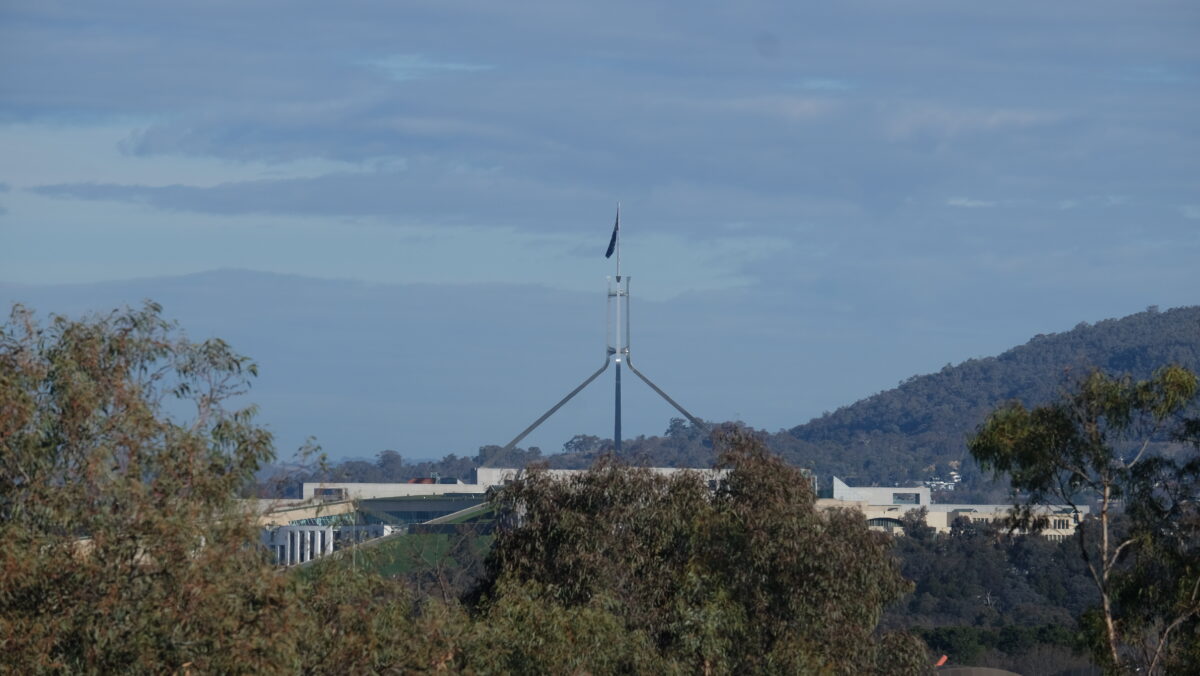On 31 March the Parliamentary Joint Committee on Human Rights released their Inquiry into antisemitism at Australian universities. The report highlights “a disturbing prevalence of antisemitism that has left Jewish students and staff feeling unsafe, hiding their identity on campus and even avoiding campus all together.”
Hugh de Kretser, the President of the Australian Human Rights Commission (AHRC), noted that there has been an increase in antisemitism complaints, as well as Islamophobia “and other forms of racism connected to the violence in the Middle East.” He also recognised that complaints to the AHRC are just a fraction of the total incidents of discrimination on campuses.
In fact, the Australian Jewish University Experience Survey, conducted in July 2023, found that 85 percent of Jewish students subjected to antisemitism decided not to file a complaint. Of these students, 61 percent cited a belief that reporting would not make a difference, while 48 percent felt the university would not take the issue seriously.
The National Tertiary Education Union submitted to the Inquiry that negative attitudes towards Muslim and Jewish people in Australia have increased since the October 2023 attacks in Israel. The Union notes that this was a trend across the board for other religions, demonstrating that “while attitudes to Australia’s Muslim and Jewish communities is a particular area of concern, relations towards and across all faiths appear to be under pressure.”
ANU reported: “In 2024 there were 34 disclosures of racism through the online disclosure tool, 10 of which were determined to be related to antisemitism. This does not necessarily mean there have been 10 separate incidents of antisemitic behaviour, as a single incident may receive multiple disclosures, as bystanders and those directly impacted can make a disclosure and access support.” There have also been four complaints of antisemitism amongst staff since October 2023.
In April 2024, ANU students established an encampment in solidarity with other universities around the world, opposing ANU’s investments in weapons manufacturers amid the Gaza conflict. The encampment lasted 110 days before being disbanded and resulted in the university announcing it would “not invest in controversial weapons manufacturers and civilian small arms manufacturers.”
In its submission to the committee, ANU reported 11 disciplinary cases linked to pro-Palestine protests, with three resulting in findings of misconduct. There were two university exclusions, with one overturned on appeal, and one other student denied partial access to ANU facilities.
The University confirmed that it has undertaken a review of its policies following the encampment. This includes updates to physical security measures such as prohibiting students from sleeping on campus outside of their residences, and the implementation of new guidelines for posters to manage content that “may impact people’s wellbeing”.
Concerns were raised by several parties to the committee that allegations of antisemitism may sometimes conflate legitimate criticism of Israel’s actions with antisemetic intent. The Australian Jewish Democratic Society, for instance, stated, “it is unavoidable that public debate and protest will disturb and challenge supporters of Israel but policing this debate cannot be put onto universities and simply classified as ‘antisemitism’ or ‘hate speech’.” Additionally, a group of academics from the University of Melbourne stated that many complaints of antisemitism “arise from a misapprehension that criticism of Israel and Zionism, and in turn recognition of Palestinian self-determination and sovereignty, is antisemitic.”
Some submissions to the Inquiry disagreed with the prevalence of antisemitism on campuses. For example, UNSW Associate Professor Dr Noam Peleg contended, “There is no compelling, independently verified, evidence to suggest that antisemitism is prevailing over other forms of racism on campuses, especially not when it comes to racism against Aboriginal and Torres Strait Islander students and staff.” He argues that some data collected may be biased, as it appears to consider any criticism of Israel as antisemitism. If this is the case, it becomes increasingly difficult to distinguish between a real rise in antisemitism and legitimate political critique. He finishes by saying, “Feeling discomfort, being challenged, and facing opinions that you don’t agree with are all part of democratic life and public debate, of being in an education setting like a university campus.”
The committee’s report outlines ten recommendations aimed at addressing antisemitism on campus. One recommendation includes adopting a definition of antisemitism that is similar to the International Holocaust Remembrance Alliance (IHRA) definition, as was done by Universities Australia in February. Although the ANU is a member of Universities Australia, they have not explicitly adopted this definition themselves, having previously considered doing so in 2023, before finding that “were ANU to explicitly reference antisemitism in policy and procedures, it would likely also be necessary to define and enshrine other forms of discriminatory behaviours.”
The ANU has stated that it “will consider the recommendations of the Parliamentary Joint Committee on Human Rights’ final report of its inquiry into antisemitism at Australian universities, along with our broader policy settings, to ensure our campus is a welcoming place for our community.” The university has pledged to “continue working proactively with the Parliament, and our Jewish and broader ANU community, on how to address these important issues.” It remains to be seen which other measures will be implemented and how effectively they will be enforced.
ANU Student Safety and Wellbeing
(02) 6125 2211
sa.bipoc@anu.edu.au
ANU Counselling
(02) 6125 2442
ANU Disabilities Students Association
sa.disabilities@anu.edu.au
ANU Indigenous Department
sa.indigenous@anu.edu.au
ANU Women’s Department
sa.womens@anu.edu.au
ANU Queer* Department
sa.queer@anu.edu.au
We acknowledge the Ngunnawal and Ngambri people, who are the Traditional Custodians of the land on which Woroni, Woroni Radio and Woroni TV are created, edited, published, printed and distributed. We pay our respects to Elders past and present. We acknowledge that the name Woroni was taken from the Wadi Wadi Nation without permission, and we are striving to do better for future reconciliation.
